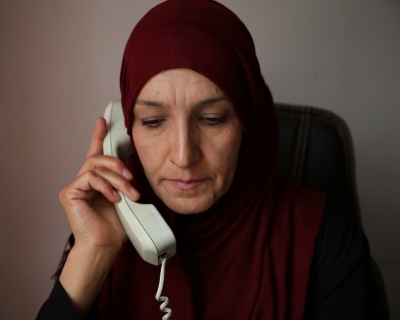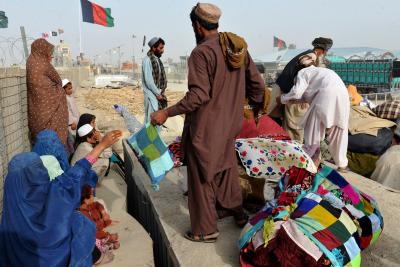
Kabul, Oct 28 (IANS) A report published by the United Nations Assistance Mission in Afghanistan (UNAMA) has revealed that the recent two-day telecommunications shutdown in Afghanistan exacerbated existing restrictions on women and girls, interrupted humanitarian operations, and created life-threatening delays in medical care.
The Office of the United Nations High Commissioner for Human Rights (OHCHR) stated on Tuesday: “This morning, the UN Human Rights Office and the UN Assistance Mission in Afghanistan published a briefing paper on the serious and far-reaching human rights impacts of last month’s telecommunications shutdowns in Afghanistan – a measure which only served to compound the array of difficulties already faced by the population. From its health systems to the banking sector and everyday operations of small businesses, the people of Afghanistan are heavily reliant on telecommunications systems to access essential services.”
The report titled ‘Out of Reach: The Impact of Telecommunications Shutdowns on the Afghan People’, was put together after conducting more than 100 interviews in the aftermath of the 48-hour nationwide shutdown implemented by Taliban between September 29 to October 1. It is based on interviews with 111 people across 32 of Afghanistan’s 34 provinces.
“Among the human rights impacts documented were: delayed or no access to healthcare and emergency services; disruption of humanitarian operations; exacerbation of existing discriminatory restrictions on women and girls; infringement on people’s daily and family lives due to the inability to contact others; and disruption of the conduct of business and banking,” the OHCHR said in its press briefing notes.
Women who were interviewed shared how their lives became even more difficult during the telecommunications shutdown. For example, some women were not able to contact their male guardians during the shutdown. Notably, women in Afghanistan must be accompanied by a male guardian for distances more than 78 kilometres or when travelling in a vehicle. In some parts of Afghanistan, male guardians need to accompany women when they go for shopping, work or healthcare facility less than 78 kilometres from her home.
Online learning is used by Afghan women and girls to study as Taliban has banned girls from studying in schools beyond the sixth class. “I can simply say that those were very difficult days and nights for us [during the shutdown]. We were extremely terrified that we may be pulled to the stone-age era of human history. It was an unbearable period of my life,” the press briefing notes quoted a student as saying.
Healthcare workers spoke about the preventable deaths that occurred in Afghanistan due to the telecommunications shutdown. Similarly, humanitarian workers said that their work was disrupted due to the shutdown and there was delay in providing support to the people. At the time, humanitarian workers were providing support to the people who were affected by the earthquake that hit Nangarhar, Laghman and Kunar provinces on August 31 and Afghan refugees repatriated from Pakistan.
The OHCHR added, “Shutdowns and other disproportionate restrictions on communications violate the rights to freedom of expression and access to information, and are contrary to Afghanistan’s human rights obligations. The de facto authorities have made no public comment to date on the reasons for the shutdown. As duty bearers of Afghanistan’s human rights obligations, they must ensure that any restrictions on the rights to freedom of expression and access to information are provided by law and are a necessary and proportionate response to a legitimate concern under international human rights law.”
–IANS
akl/as




